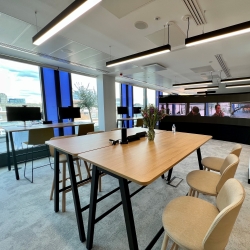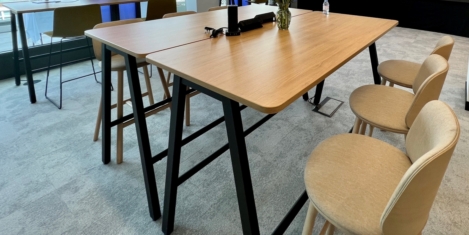To provide the best experiences, we use technologies like cookies to store and/or access device information. Consenting to these technologies will allow us to process data such as browsing behaviour or unique IDs on this site. Not consenting or withdrawing consent, may adversely affect certain features and functions.
The technical storage or access is strictly necessary for the legitimate purpose of enabling the use of a specific service explicitly requested by the subscriber or user, or for the sole purpose of carrying out the transmission of a communication over an electronic communications network.
The technical storage or access is necessary for the legitimate purpose of storing preferences that are not requested by the subscriber or user.
The technical storage or access that is used exclusively for statistical purposes.
The technical storage or access that is used exclusively for anonymous statistical purposes. Without a subpoena, voluntary compliance on the part of your Internet Service Provider, or additional records from a third party, information stored or retrieved for this purpose alone cannot usually be used to identify you.
The technical storage or access is required to create user profiles to send advertising, or to track the user on a website or across several websites for similar marketing purposes.
 Zoom has opened a new London ‘Engagement Hub’ which the firm claims will spearhead the shift from traditional office spaces to ‘experiential working hubs’. With the demand for hybrid working and remote capabilities giving rise to unconventional ways of operating, Zoom says it has designed its new office to support the changing nature of the employee experience, marking a new era of modern work. (more…)
Zoom has opened a new London ‘Engagement Hub’ which the firm claims will spearhead the shift from traditional office spaces to ‘experiential working hubs’. With the demand for hybrid working and remote capabilities giving rise to unconventional ways of operating, Zoom says it has designed its new office to support the changing nature of the employee experience, marking a new era of modern work. (more…)








 As organizations adopt hybrid work, reduce their real estate footprint and redesign floor plans, space planners are running into a slew of new challenges. Yesterday’s antiquated tools can’t handle these challenges, because they were built for the old, relatively static world of work.
As organizations adopt hybrid work, reduce their real estate footprint and redesign floor plans, space planners are running into a slew of new challenges. Yesterday’s antiquated tools can’t handle these challenges, because they were built for the old, relatively static world of work. 












 A new poll of people aged between 35 and 55 suggests that most workers expect to retire at around 62 years old, four years earlier than the UK state pension age of 66. The report called
A new poll of people aged between 35 and 55 suggests that most workers expect to retire at around 62 years old, four years earlier than the UK state pension age of 66. The report called 







August 1, 2023
How many fingers am I holding up?
by Mark Eltringham • Comment